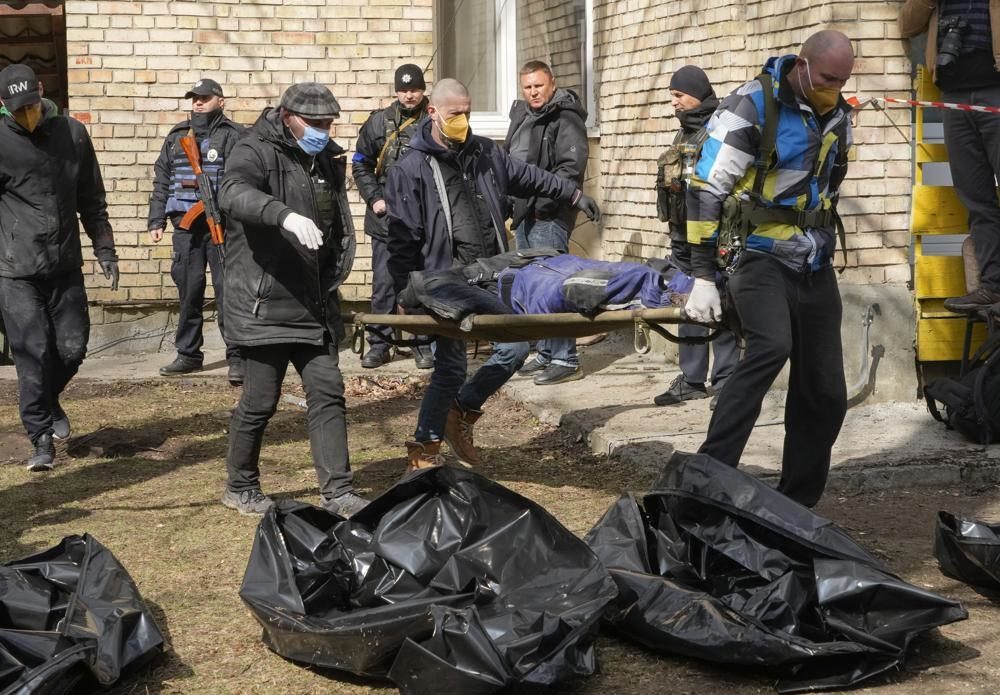Russia, US head to Gulf amid oil tension
Both Russia and the US are seeking cooperation with the Gulf countries – a geostrategic region considered “the world’s oil fields” – amid the crisis. oil Climb the ladder.

Visit of Russian Foreign Minister
Russian Foreign Minister Sergei Lavrov began his Gulf tour with a stop in Bahrain on May 30. On June 1, Lavrov arrived in Riyadh, starting an official visit to Saudi Arabia and meeting with foreign ministers of the GCC Gulf Cooperation Council countries (including Bahrain, Kuwait, Oman, Qatar, Saudi Arabia and the United Arab Emirates). UAE). Speaking in Riyadh, Foreign Minister Lavrov affirmed that GCC members will not participate in global sanctions against Russia. “The GCC countries understand the nature of the conflict between us and the West,” Lavrov was quoted as saying by the National newspaper.
For his part, Saudi Foreign Minister Prince Faisal bin Farhan said that the Gulf region has a unified position on the conflict in Ukraine. “Saudi Arabia’s position is based on the foundation of international law and supports efforts to reach a political solution to end the crisis, achieve security and stability,” the SPA news agency quoted as saying. Foreign Minister Faisal bin Farhan announced.
On the same day, Gulf foreign ministers also discussed online with Ukrainian Foreign Minister Dmytro Kuleba. The main focus of the discussions was on the oil issue, especially in the face of Western and US pressure to increase oil pumping, as well as the Russia-Ukraine crisis. Saudi Arabia and other OPEC members have so far resisted US pressure to increase crude output more to cool oil prices, which have risen in part due to the conflict. Ukraine. Saudi Arabia says the high oil prices are due to geopolitics, refining capacity and higher taxes in the West, not supply concerns.
Meanwhile, Russian and Gulf diplomats praised the level of cooperation within OPEC+. “The parties noted the close cooperation between Russia and Saudi Arabia on hydrocarbons in the world’s strategically important oil sector,” said a statement posted on the website of the Russian Foreign Ministry.
Besides oil, food security is also a focus of this visit to the Gulf by the Russian Foreign Minister, as a country that maintains balance and stability in the important geostrategic region and is oil field of this world. The conflict in Ukraine has pushed food prices to unprecedented heights, putting the world at risk of a food crisis.
Commenting on the Russian Foreign Minister’s visit to the Gulf region, expert Boris Dolgov of the Institute of Oriental Studies said that the visit not only reflects Russia’s foreign policy priorities for the Middle East, but also a part of Russia’s foreign policy. Moscow’s efforts to raise the balance that GCC member states have demonstrated to this day in the conflict in Ukraine.
US President considers visit to the Gulf
AP sources said that US President Joe Biden is considering visiting Saudi Arabia, attending a meeting of GCC leaders. The news comes as strategic oil and security interests have prompted the Washington administration to reconsider the arms sales stance that Biden pledged to Saudi Arabia as a candidate. member for the White House. Any potential meeting between President Biden and the de facto leader of Saudi Arabia Crown Prince Mohammed bin Salman during Biden’s visit to the Middle East could offer some hope to American consumers, which is struggling when the tight global oil supply is decreasing, causing gasoline prices to increase.
President Biden is expected to meet Crown Prince Mohammed bin Salman if the visit to Saudi Arabia takes place, according to an AP source familiar with the matter. Such a meeting could also ease one of the most difficult and uncertain periods in the partnership between Saudi Arabia, the world’s top oil exporter, and the United States, the leading economic and military power. world, for more than three-quarters of a century. Relations between the two countries became strained after the murder of Saudi journalist Jamal Khashoggi in Turkey, which the US blamed on Crown Prince Mohammed bin Salman.
Mr. Biden is expected to visit Europe at the end of June. The visit to Saudi Arabia, if done, will follow his European tour. Last week, the White House confirmed that the National Security Council’s Middle East coordinator, Brett McGurk, and Amos Hochstein, senior adviser on energy security at the State Department, were recently in the region. . Mr. McGurk and Hochstein have repeatedly visited Saudi Arabia to negotiate with Saudi authorities on energy supplies. US Secretary of State Antony Blinken also had a phone call on May 31 with his Saudi counterpart.
US lawmakers have paid special attention to Saudi Arabia’s refusal to increase oil production despite calls from the West for months. The oil production cap is adding to the supply shortfall, especially after Russia launched a military campaign in Ukraine and received Western sanctions targeting the oil and gas sector.
Meanwhile, frequent visits by Saudi, Russian and Chinese officials during Washington and Riyadh’s tensions have raised concerns that Saudi Arabia is disrupting Western strategic interests.
The United States is looking for “real assurances that Saudi Arabia will align firmly with the United States internationally and not try to have similar relationships with Russia and China,” Dan Shapiro said. Former US Ambassador to Israel – said.
at Blogtuan.info – Source: laodong.vn – Read the original article here



